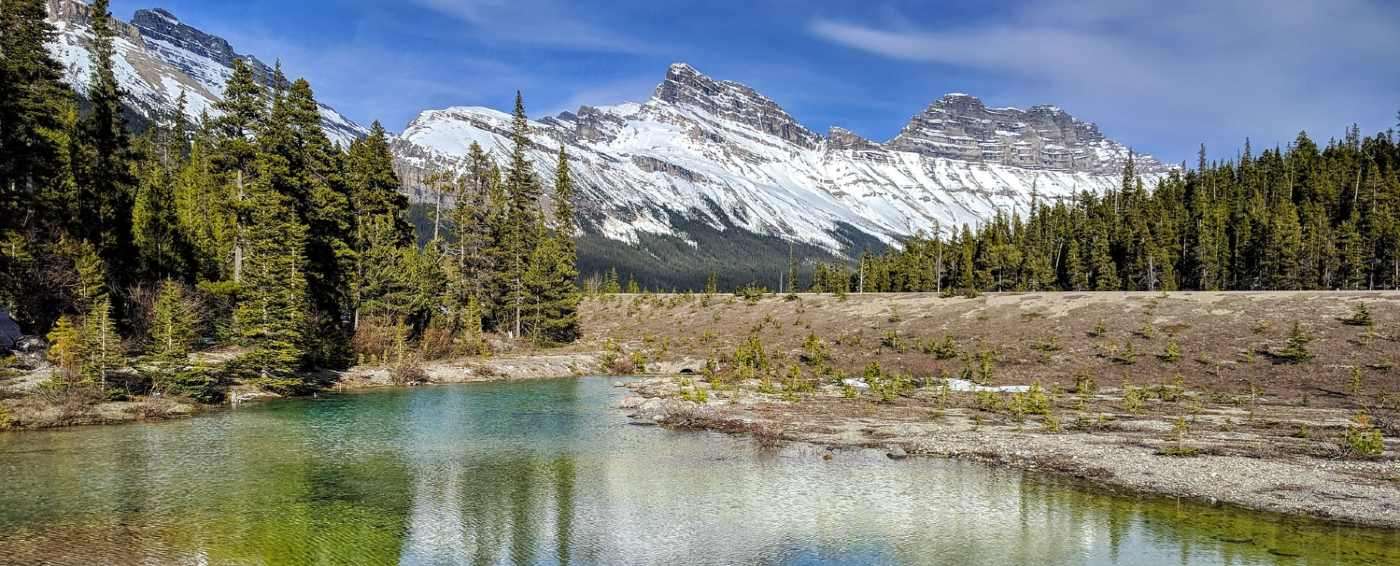Himalayan State Becomes First in India to Give Wives Co-Ownership of Ancestral Land
In the Indian State of Uttarakhand, women have been made co-owners of their husbands, or father's, ancestral land—such as farms.

When the current Alberta government tried to repeal a piece of legislation restricting coal mining in the Rockies, Canadians of all varieties banded together to object.
The idea of exploratory metallurgical mining pits opening in the most iconic of Albertan landscapes—the mountains—has seen nothing more than unprecedented mobilization from the public.
Threatened wildlife, First Nation lands, popular recreation sites, the headwaters of a principal freshwater source for communities, and grazing lands used for generations by ranchers typify the eastern slopes of the Rockies, all labeled as Category 2—or unavailable for mining development—under the 1976 law the government sought to dispel.
Facebook groups, country music stars, conservationists, farmers, and more all joined together to oppose the repeal, which the United Conservative Party government did eventually go back on, but which controversial premier Jason Kenney said was only a "course correct."
"We admit we didn't get this one right," said provincial Minister of Energy Sonya Savage. "We're not perfect and Albertans sure let us know that."
Savage would eventually issue additional directives to Alberta Energy Regulator stating that: "No mountaintop removal will be permitted and all of the restrictions under the 1976 coal categories are to apply, including all restrictions on surface mining in Category 2 lands," and "All future coal exploration approvals on Category 2 lands will be prohibited pending widespread consultations on a new coal policy."
Given that any leases and exploration programs approved while the coal policy was rescinded can still continue, Albertans aren't stopping the fight to protect the province's mountains and headwaters just yet.
Many have been surprised that the provincial government didn't seem to expect such a fight from the public.
"It doesn't take much looking at… Tourism Alberta ads," political science professor Melanee Thomas told The Narwhal. "They are literally almost exclusively about the eastern slopes."
The idea of exploratory metallurgical mining pits opening in the most iconic of Albertan landscapes—the mountains—has seen nothing more than unprecedented mobilization from the public.
Threatened wildlife, First Nation lands, popular recreation sites, the headwaters of a principal freshwater source for communities, and grazing lands used for generations by ranchers typify the eastern slopes of the Rockies, all labeled as Category 2—or unavailable for mining development—under the 1976 law the government sought to dispel.
Facebook groups, country music stars, conservationists, farmers, and more all joined together to oppose the repeal, which the United Conservative Party government did eventually go back on, but which controversial premier Jason Kenney said was only a "course correct."
"We admit we didn't get this one right," said provincial Minister of Energy Sonya Savage. "We're not perfect and Albertans sure let us know that."
Savage would eventually issue additional directives to Alberta Energy Regulator stating that: "No mountaintop removal will be permitted and all of the restrictions under the 1976 coal categories are to apply, including all restrictions on surface mining in Category 2 lands," and "All future coal exploration approvals on Category 2 lands will be prohibited pending widespread consultations on a new coal policy."
Given that any leases and exploration programs approved while the coal policy was rescinded can still continue, Albertans aren't stopping the fight to protect the province's mountains and headwaters just yet.
Many have been surprised that the provincial government didn't seem to expect such a fight from the public.
"It doesn't take much looking at… Tourism Alberta ads," political science professor Melanee Thomas told The Narwhal. "They are literally almost exclusively about the eastern slopes."
What's happening right now in Alberta is a tremendous demonstration of the power of collective public action, and a warning to any future politicians who want to make their bread at the expense of the wheat.
TAKE ACTION—Share This Story on Social Media…
Be the first to comment